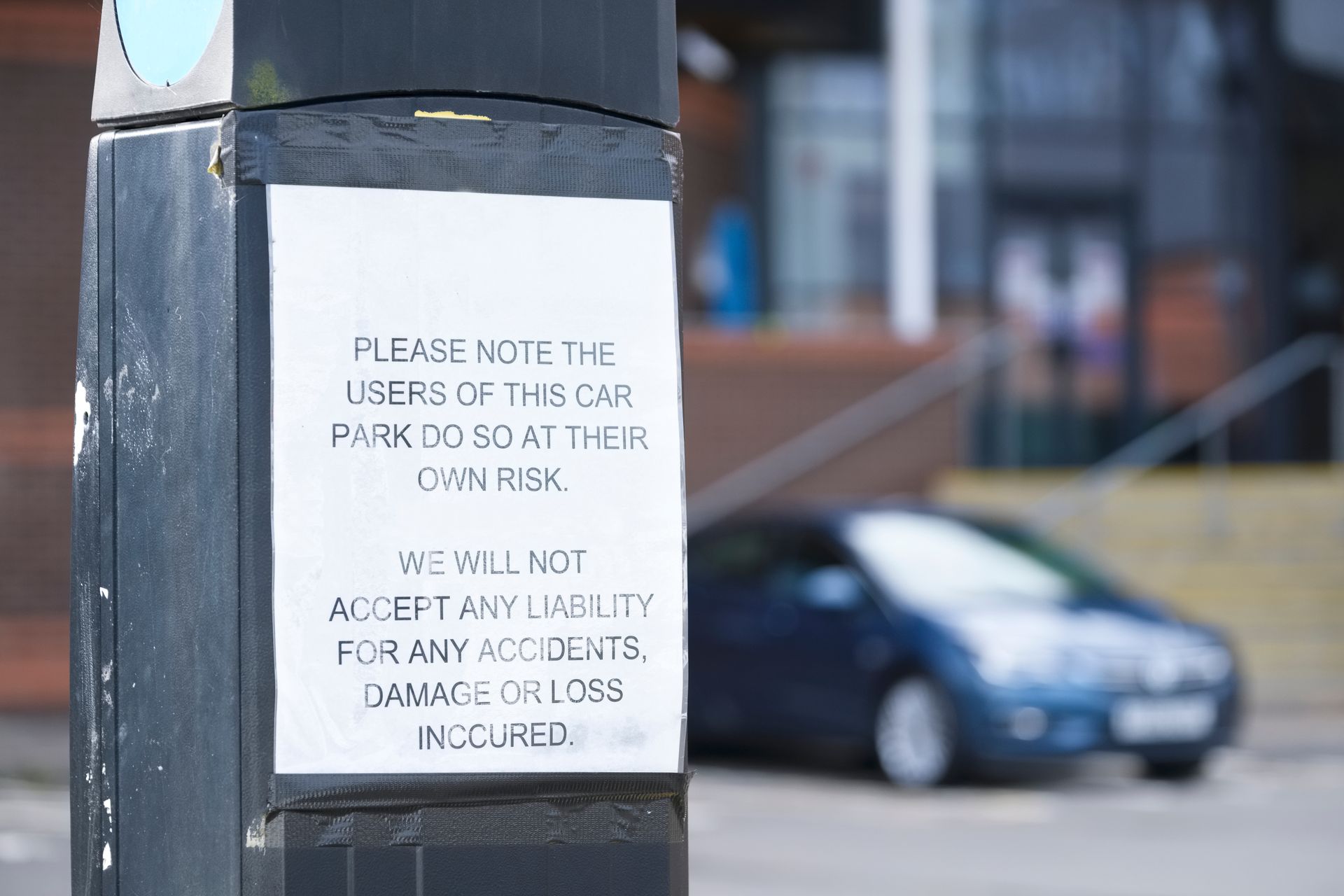Blog

Running a business is challenging and the potential for third-party injury claims is one of the most daunting threats. The good news is that there are several legal protections and policies you can implement to safeguard your business and reduce the risk of litigation, financial hardship and business closure.
Forming an LLC or Corporation
One of the most important steps in protecting your business from claims is choosing the right legal structure. Forming a Limited Liability Company (LLC) or corporation separates your personal assets from your business liabilities. This means that if your business is sued, only the company’s assets are at risk and your personal property, such as your home or savings, is shielded from liability. Additionally, the LLC and corporate structures offer tax advantages and credibility, which can also benefit your business.
Well-Drafted Contracts
Having well-drafted contracts is crucial for mitigating the risk of disputes with customers, vendors, partners or employees. Every contract should clearly define the roles and responsibilities of both parties, establish performance expectations, outline payment terms and include dispute resolution clauses. The language should be straightforward, precise and legally binding. A well-written contract can prevent misunderstandings and provide a clear path to resolving issues before they escalate into lawsuits.
Non-Disclosure Agreements (NDAs)
Non-disclosure agreements (NDAs) are necessary for protecting sensitive information that is shared with employees, partners or contractors. Whether it’s proprietary business strategies, client lists or trade secrets, an NDA ensures that confidential information remains protected. Breaching an NDA can lead to legal action, providing you with a way to hold the offending party accountable.
General Liability Insurance
Accidents happen, and general liability insurance is your first line of defense against claims related to bodily injury and property damage. This coverage is necessary for protecting your business from costly claims if, for instance, a customer slips and falls on your premises or an employee damages someone’s property. General liability insurance helps cover legal fees, settlements and judgments, so business owners do not have to face the financial impact of an unexpected lawsuit.
Professional Liability Insurance (Errors & Omissions Insurance and Medical Malpractice)
Professional liability insurance, also known as errors and omissions (E&O) insurance or medical malpractice insurance, is vital for service-based businesses. This coverage protects you and your business from claims of negligence, mistakes or inadequate work that cause financial loss or injury to a client. For example, if a consulting firm provides inaccurate advice that results in a client losing money, E&O insurance helps cover legal defense costs and any potential settlements.
Product Liability Insurance
If your business manufactures, distributes or sells products, you’ll want to consider product liability insurance, especially if the products you make pose a uniquely high risk of harm or injury in the event of failure. These policies can provide higher limits or unique coverage for specific types of product risks. Whether it’s a design flaw, manufacturing defect or insufficient instructions, product liability insurance can help your business avoid major financial losses due to lawsuits.
Cyber Liability Insurance
In today’s digital age, businesses are increasingly vulnerable to data breaches and cyberattacks. Cyber liability insurance protects your business from the financial fallout of these incidents. This coverage helps with the costs associated with data breaches, such as notifying affected customers, restoring compromised data and defending against third-party claims brought by people harmed by the breach or cyberattack. Given the growing threat of cybercrime, having this insurance in addition to general liability insurance may be beneficial for businesses that depend on digital records and information.
Employment Practices Liability Insurance (EPLI)
Even with strong employment policies in place, businesses can still face lawsuits from employees. Employment Practices Liability Insurance (EPLI) protects your business from claims of wrongful termination, discrimination, harassment and other employment-related issues. This coverage is especially important for businesses with a large workforce or those operating in industries prone to labor disputes.
Employee Handbook
An employee handbook is an important tool for communicating company policies and expectations to employees. A well-crafted handbook helps clarify your business’s stance on workplace behavior, safety regulations, benefits, disciplinary procedures and more.
Businesses are liable for employee actions, even if those actions are forbidden by employee guidelines, due to the legal principle of vicarious liability. This is why it’s so important that businesses hold employees accountable and terminate or discipline employees whose behavior increases the risk of third-party claims.
Workers’ Compensation Insurance
If an employee is injured on the job, workers’ compensation insurance provides coverage for their medical expenses and lost wages. This coverage not only protects your employees but also shields your business from personal injury lawsuits.
Our Atlanta General Liability Defense Lawyers Will Strive to Protect Your Business From Third-Party Claims and Litigation
Don’t leave your business exposed to potential lawsuits. The Law Office of Cameron Hawkins can help you implement the legal protections your business needs.
Contact us today here on our website or give us a call at (678) 921-4225.











